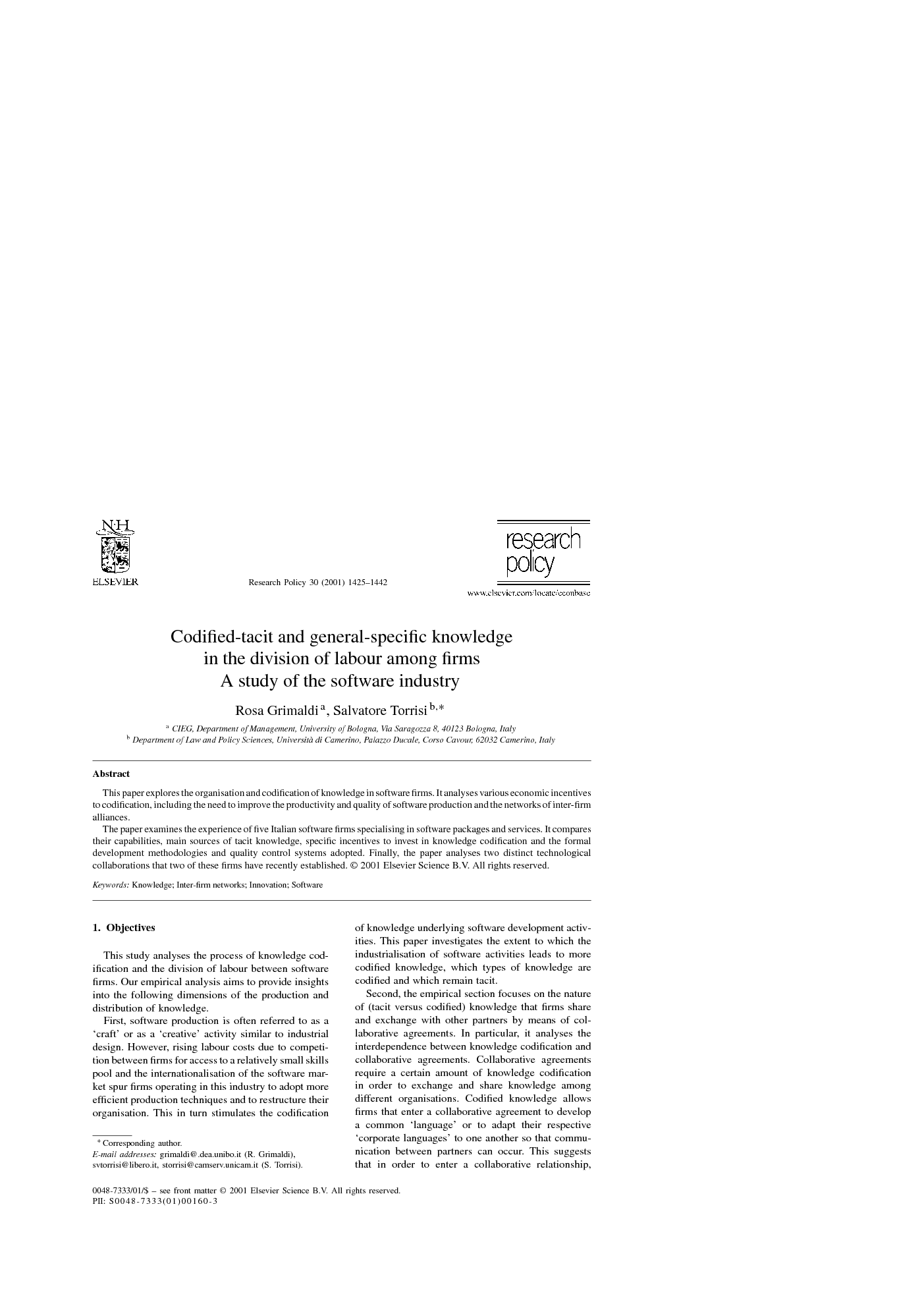ترجمه فارسی عنوان مقاله
دانش مدون - نهانی و دانش کلی - خاص در تقسیم کار در میان شرکت ها: مطالعه صنعت نرم افزار
عنوان انگلیسی
Codified-tacit and general-specific knowledge in the division of labour among firms: A study of the software industry
| کد مقاله | سال انتشار | تعداد صفحات مقاله انگلیسی |
|---|---|---|
| 19252 | 2001 | 18 صفحه PDF |
منبع

Publisher : Elsevier - Science Direct (الزویر - ساینس دایرکت)
Journal : Research Policy, Volume 30, Issue 9, December 2001, Pages 1425–1442
ترجمه کلمات کلیدی
- دانش - شبکه های بین شرکت - نوآوری - نرم افزار -
کلمات کلیدی انگلیسی
Knowledge,Inter-firm networks,Innovation,Software,

